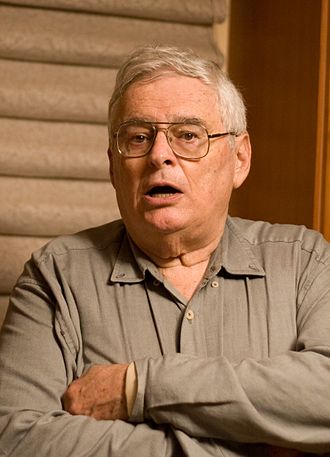 The distinguished philosopher of mind Jerry Fodor died on November 29, 2017, at the age of 82, according to The New York Times (November 30, 2017). Often described as the leading philosopher of mind of his day, Fodor was particularly well-known for his contributions to the modularity of mind and the language of thought hypotheses. A prolific, provocative, and entertaining author, his books included The Modularity of Mind (1983), Psychosemantics (1986), The Elm and the Expert (1994), and The Mind Doesn't Work That Way (2000).
The distinguished philosopher of mind Jerry Fodor died on November 29, 2017, at the age of 82, according to The New York Times (November 30, 2017). Often described as the leading philosopher of mind of his day, Fodor was particularly well-known for his contributions to the modularity of mind and the language of thought hypotheses. A prolific, provocative, and entertaining author, his books included The Modularity of Mind (1983), Psychosemantics (1986), The Elm and the Expert (1994), and The Mind Doesn't Work That Way (2000).
Toward the end of his career, Fodor launched a philosophical attack on the theory of natural selection, arguing that talk about selection for traits relies on a metaphor that is ultimately insupportable: where there is no selector — human, divine, or instantiated by natural law — there is no selection for; accordingly, the theory of natural selection is unable to distinguish causally active traits from their mere correlates. Fodor aired the argument in the London Review of Books (2007), the journal Mind and Language (2008), and at book length in What Darwin Got Wrong (2010), coauthored with Massimo Piattelli-Palmarini. Criticism was not slow in coming, with philosophers such as Michael Ruse and Elliott Sober and biologists such as Jerry Coyne and Douglas Futuyma offering their objections — to which Fodor, always a keen polemicist, responded. Throughout, Fodor disclaimed any intention of challenging evolution in the sense of common descent or of appealing to the supernatural in explanations of natural phenomena, a fact often unacknowledged by creationists applauding his attack on natural selection.
Fodor was born in New York City on April 22, 1935. He received his A.B. in philosophy from Columbia University in 1956 and his Ph.D. in philosophy from Princeton University in 1960. He taught at the Massachusetts Institute of Technology from 1959 to 1986, then at the City University of New York from 1986 to 1988, and then at Rutgers University from 1988 until his retirement in 2016. His honors included presidency of the Eastern Division of the American Philosophical Association in 2005-2006, membership in the American Academy of Arts and Sciences, and the first Jean Nicod Prize for philosophy of mind and cognitive philosophy.
